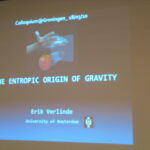Understanding Divine Foreknowledge and Human Freedom: The Role of Middle Knowledge
Introduction: Reconciling Divine Foreknowledge and Human Freedom
Divine foreknowledge, the concept that God knows everything that will happen, often raises questions about human freedom. How can humans truly make free choices if God already knows the outcome? This philosophical dilemma has been a central question for theologians and philosophers alike. In this article, we will explore how divine foreknowledge can coexist with human free will and how middle knowledge serves as a critical bridge between these two ideas.
God’s Knowledge: More Than Just the Future
At the core of this discussion is God’s omniscience, or His ability to know everything. But God’s knowledge is more than just what will happen. It includes what could happen and what would happen in any set of circumstances. These three forms of knowledge are traditionally categorized as God’s natural knowledge, middle knowledge, and free knowledge.
Natural knowledge refers to God’s understanding of all possibilities—everything that could happen. Free knowledge is God’s knowledge of what will actually happen in the world. Middle knowledge, which sits between these two, involves knowing what would happen under different circumstances. This unique concept of middle knowledge helps to reconcile God’s omniscience with human freedom.
What is Middle Knowledge?
Middle knowledge, a concept introduced by the Jesuit theologian Luis de Molina in the 16th century, provides a way for God to have complete knowledge of all possible outcomes of free decisions without infringing on human freedom. God, through middle knowledge, knows what each person would freely choose in any possible situation. This means that, although humans have free will, God knows how each of us would respond to every possible scenario.
For example, God knows not only what you will eat for lunch tomorrow but also what you would have done had you been living in a different country or under different circumstances. This allows God to have absolute control over the course of human history while still allowing humans to exercise their free will.
How Middle Knowledge Works with Free Will
At first glance, the idea of middle knowledge might seem to give God too much control, leading to concerns about the true nature of human freedom. If God knows what each person would freely choose in every situation and places people in specific circumstances, does that mean our freedom is somehow limited? Not at all. According to this view, humans still have the ability to make free choices, even if God knows in advance what those choices will be.
God’s knowledge of the future does not mean that the future is fixed in a way that eliminates human freedom. If a person were to make a different choice, God would have foreseen that as well. This concept is what makes middle knowledge so powerful—it allows God to maintain divine sovereignty without undermining human freedom.
God’s Foreknowledge and Human Freedom: Are They Compatible?
The compatibility of divine foreknowledge and human freedom is a question that has been debated for centuries. Some have argued that if God knows everything that will happen, then human choices must be predetermined. Others believe that human freedom and divine foreknowledge can coexist.
William Lane Craig, a leading philosopher in this field, defends the idea that God’s foreknowledge is fully compatible with human freedom. He argues that God’s knowledge of future events does not cause those events to happen. Rather, God knows what will happen because of human free choices. If a person were to make a different choice, God would have foreseen that outcome as well.
This explanation resolves the apparent tension between divine foreknowledge and human freedom. Humans remain free to make choices, and God, in His omniscience, simply knows in advance what those choices will be.
The Role of Middle Knowledge in Divine Providence
One of the most intriguing aspects of middle knowledge is how it enhances the concept of divine providence, or God’s guiding hand in the world. Middle knowledge gives God the ability to guide human history without violating human freedom. By knowing what each person would do in any given situation, God can orchestrate events in a way that achieves His purposes while still respecting human choice.
For instance, God could allow certain events to happen because He knows how people will freely respond to them. He can place individuals in specific situations that align with His divine plan, knowing that their free choices will lead to the desired outcome. This view preserves both God’s sovereignty and human freedom, making middle knowledge a brilliant synthesis of divine control and human autonomy.
Challenges to Middle Knowledge
Although middle knowledge provides a compelling solution to the problem of divine foreknowledge and human freedom, it is not without its challenges. Some philosophers question whether middle knowledge is logically possible. Can God truly know what every individual would do in every possible situation? The sheer complexity of such knowledge seems overwhelming.
However, Craig argues that the infinite complexity of middle knowledge only underscores the greatness of God’s omniscience. If God is truly omniscient, then knowing what every person would freely choose in any circumstance is not beyond His ability. This perspective emphasizes the majesty and depth of God’s knowledge, highlighting His ability to maintain control over an infinitely complex world.
Providence and Human Responsibility
One concern often raised about middle knowledge is whether it gives God too much control, thereby diminishing human responsibility. If God knows exactly how we will act in every situation, does that mean we are no longer fully responsible for our actions?
Craig argues that this is not the case. Even though God knows what we will do, we still make free choices in every circumstance. God does not force us to act in a particular way; He simply knows what we will choose. As a result, human beings remain fully responsible for their actions, even in a world where God has foreknowledge of every choice.
Conclusion: The Power and Mystery of Middle Knowledge
The concept of middle knowledge offers a fascinating way to reconcile divine foreknowledge with human freedom. It provides a framework in which God can have complete control over the course of history while allowing humans to make genuinely free choices. By knowing what every person would freely do in any possible situation, God exercises His providence without infringing on human autonomy.
This profound synthesis of divine sovereignty and human freedom not only enhances our understanding of God’s omniscience but also offers a richer view of how God interacts with the world. If you’re intrigued by these ideas and want to learn more, I encourage you to explore the full conversation on middle knowledge: here.





